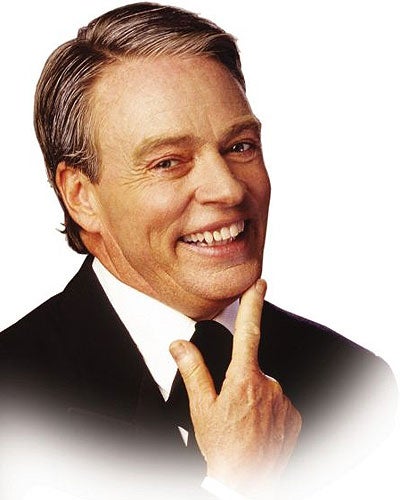What would Mammy say? Actor to play Al Jolson without blacking up
Producer rejects use of traditional make-up to avoid causing offence

It was one of the iconic moments of the 20th century – Al Jolson singing “My Mammy” in the first talking picture, The Jazz Singer. But in a new theatrical production based on the life of the man famous for “blacking up”, the actor who plays Jolson will perform the song without minstrel make-up, to avoid offending audiences.
The decision not to include a full blackface scene in Jolson & Co – the Musical at the King’s Theatre in Edinburgh next month is likely to invoke allegations of over-the-top political correctness. The production embarks on a UK tour after the Edinburgh run.
The UK spokesman for the International Al Jolson Society, Reg Reeves, said it was best to leave out a full blackface scene. “There was no problem at all when Jolson was performing. It was only afterwards. But we live in an age of political correctness where people seem to get upset about most things.”
The show’s producer, Michael Harrison, defended his decision to make the show’s star, Allan Stewart, perform without the black make-up.
“The important point is that blackface is not ignored within the show. It was part of his act but while you don’t see Al Jolson in make-up there is a substantial scene of him talking about it. The really interesting things about him were his relationships with women, his four wives, his ego, his relationship with his father and the movies he made.”
An Equity spokesman, Paul Brown, said the union opposed the use of blackface but the Jolson show was “one of the very limited times when we might not actively object”. Actors playing Shakespeare’s Othello no longer “black up”.
Stewart was the understudy to Brian Conley in the Olivier-award winning Jolson: the Musical, in which Conley performed briefly in blackface, prompting a small demonstration in 1995. But the use of make-up to turn a white man black and tell the story of Jolson’s life has since gone out of fashion. Anti-racism campaigners have long denigrated the centuries-old blackface convention, claiming it perpetrates plantation-era notions of “happy-go-lucky” African-American manhood. They regard it as the forerunner of the appropriation of black culture through rock’n’roll and Elvis Presley.
The practice became unacceptable in the US during the fight for civil rights but it continued to enjoy prime time exposure on British television until 1978, when The Black and White Minstrel Show ended after a 20-year run. Marv Freeman, the organiser of the 2009 Jolson Festival in Phoenix, Arizona, rejects suggestions that Jolson, who died in 1950, was racist. He said the first mainstream Jewish star helped launch the careers of popular music giants including Duke Ellington, Cab Calloway and Sammy Davis Jnr.
“When he was recruiting an orchestra he would only employ the very, very best. He was colour blind and if he was performing today he would be leading the way in terms of racial tolerance.”
Al Jolson: Star of the Golden Age
Born in Lithuania to Jewish parents, Al Jolson, real name Asa Yoelson, became perhaps the greatest star of the Golden Age of stage, radio and film. Among his most famous songs were “My Mammy”, “California Here I Come” and “Sonny Boy”. He was the first artist to sell one million records. Idolised by fans and fellow performers, his was the biggest name on Broadway and in Vaudeville. But it was his migration to motion pictures, notably his appearance as himself in the first talkie, the semi-autobiographical The Jazz Singer in 1927, for which he is best remembered. Jolson considered his proudest achievement to be entertaining US troops in the First and Second World Wars as well as in Korea. Married four times and with three adopted children, he died in 1950, aged 64.
Join our commenting forum
Join thought-provoking conversations, follow other Independent readers and see their replies
Comments
Bookmark popover
Removed from bookmarks